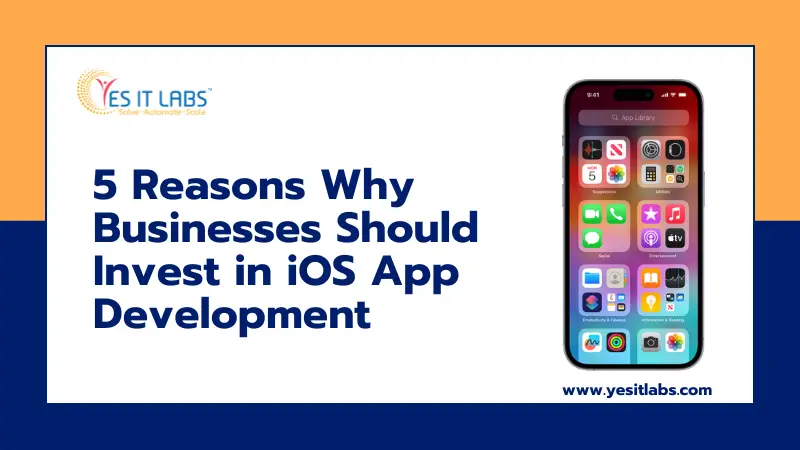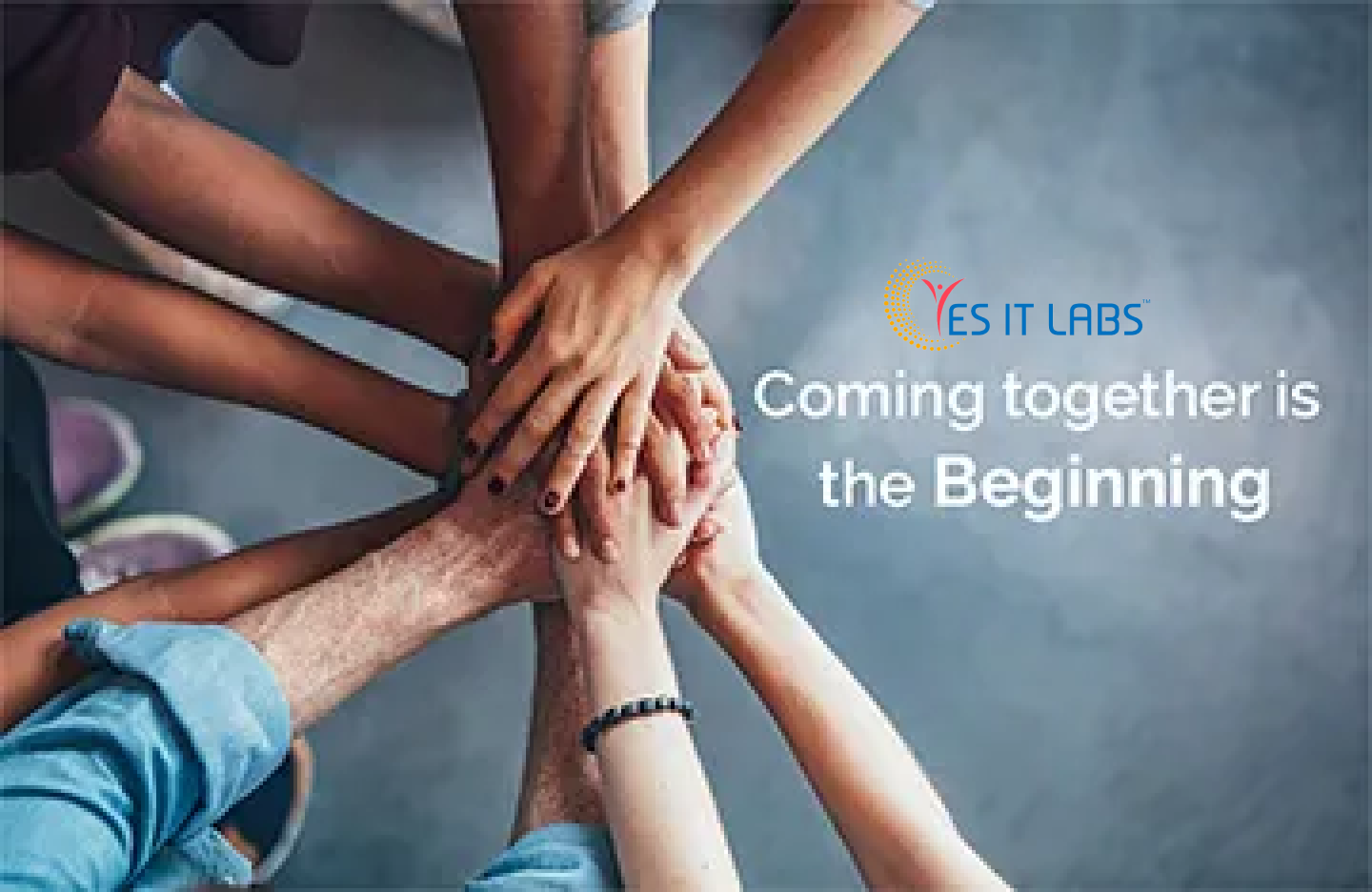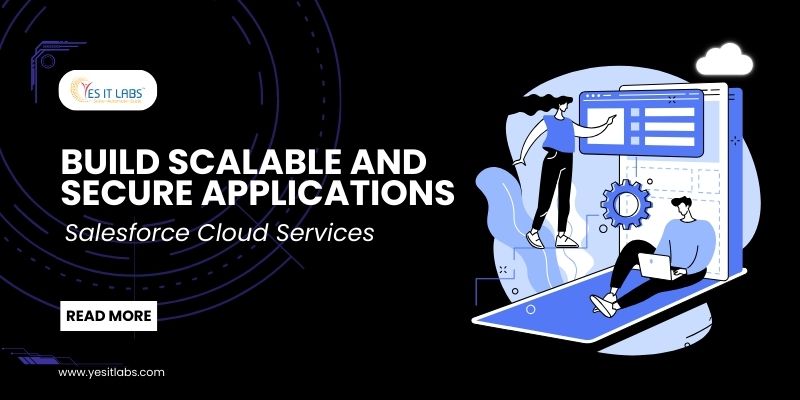

How to Build Scalable and Secure Applications with Salesforce Cloud Services?
Salesforce is the world’s leading cloud platform for customer relationship management (CRM) and enterprise applications. With Salesforce, you can build powerful, engaging, and secure applications that run on any device and connect to any data source. Whether you want to create a custom app from scratch, extend an existing app, or integrate with other cloud services, Salesforce has the tools and resources you need to succeed.
In this article, we will explore some of the best practices and features that Salesforce offers to help you build scalable and secure applications by collaborating with the salesforce development company.
What are Salesforce Cloud Services?
Salesforce Cloud Services are a collection of cloud-based products and platforms that enable you to create, manage, and deliver applications on the Salesforce platform. Some of the key Salesforce cloud services are:
- Salesforce Platform: The core platform that provides the infrastructure, tools, and services to build, run, and manage apps on Salesforce. It includes features such as App Builder, Lightning Web Components, Apex, Visualforce, Heroku, Einstein, and more.
- Sales Cloud: The flagship CRM product that helps you manage your sales processes, pipelines, and forecasts. It includes features such as leads, accounts, contacts, opportunities, quotes, orders, contracts, products, price books, and more.
- Service Cloud: The customer service and support product that helps you deliver faster, smarter, and more personalised service to your customers. It includes features such as cases, solutions, knowledge, live agents, chatbots, omni-channels, field service, and more.
- Marketing Cloud: The digital marketing product that helps you create and execute personalised, cross-channel campaigns to reach your customers and prospects. It includes features such as Email Studio, Mobile Studio, Social Studio, Advertising Studio, Journey Builder, Audience Studio, and more.
- Commerce Cloud: The e-commerce product that helps you create and manage online stores, catalogues, and shopping carts. It includes features such as a storefront, order management, inventory management, product recommendations, and more.
- Community Cloud: The online community product that helps you create and manage branded, interactive, and engaging communities for your customers, partners, and employees. It includes features such as Experience Builder, Experience Cloud Sites, Chatter, Topics, Reputation, and more.
- Analytics Cloud: The business intelligence and analytics product that helps you explore, visualize, and share data insights from any source. It includes features such as Tableau CRM, Tableau Desktop, Tableau Server, Tableau Online, and more.
- Integration Cloud: The integration and API product that helps you connect and orchestrate data and processes across Salesforce and other systems. It includes features such as MuleSoft Anypoint Platform, Salesforce Connect, Platform Events, Change Data Capture, and more.
How to Build Scalable Applications with Salesforce Cloud Services?
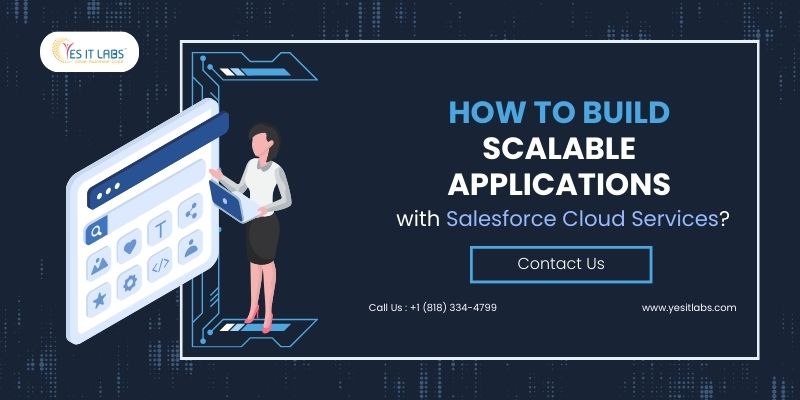
Scalability is the ability of an application to handle a growing number of users, requests, and data without compromising performance, reliability, or functionality. Scalability is essential for any application that aims to serve a large and diverse audience, especially in the cloud environment where demand can fluctuate rapidly and unpredictably.
Salesforce Cloud Services provide several features and best practices to help you build scalable applications, such as:
- Multi-tenant architecture: Salesforce uses a multi-tenant architecture, which means that multiple customers share the same hardware, software, and infrastructure resources, but their data and applications are isolated and secure. This allows Salesforce to optimize the utilization and allocation of resources, and to scale up or down as needed without affecting the performance or availability of individual customers.
- Elastic computing: Salesforce leverages elastic computing, which means that it can dynamically adjust the computing power and storage capacity based on the real-time demand and workload of the applications. This allows Salesforce to handle peak traffic, seasonal variations, and unexpected spikes without compromising the performance or availability of the applications.
- Governor limits: Salesforce imposes governor limits, which are runtime limits that enforce the efficient and optimal use of the platform resources. Governor limits prevent any single customer or application from monopolising the shared resources and affecting the performance or availability of other customers or applications. Governor limits also encourage developers to write efficient and scalable code that follows best practices and design patterns.
- Bulk and asynchronous processing: Salesforce supports bulk and asynchronous processing, which means that it can process large volumes of data or requests in batches or in the background, without blocking the user interface or the main thread of execution. Bulk and asynchronous processing allow the applications to handle complex, long-running, or resource-intensive operations without affecting the performance or availability of the applications.
- Caching and performance optimization: Salesforce provides caching and performance optimization features, such as Platform Cache, Content Delivery Network (CDN), and Lightning Data Service, that help reduce the latency and bandwidth consumption of the applications. Caching and performance optimization allow the applications to store and retrieve frequently used data or content faster and more efficiently, without making unnecessary or redundant requests to the server or the database.
How to Build Secure Applications with Salesforce Cloud Services?
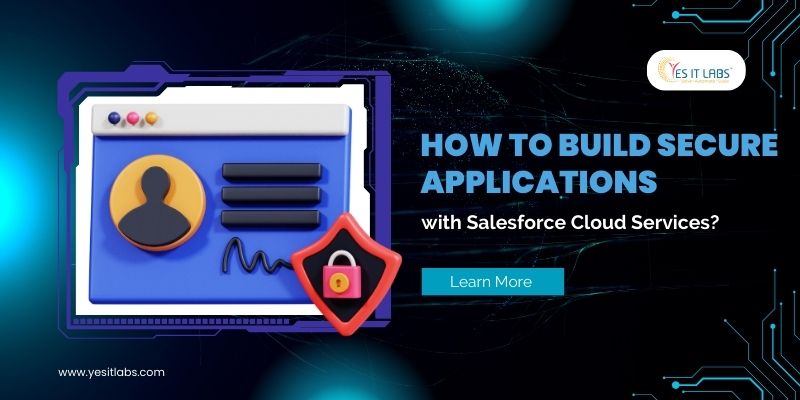
Security is the protection of an application and its data from unauthorised access, modification, or disclosure. Security is crucial for any application that handles sensitive, confidential, or proprietary data, especially in the cloud environment where the data and the applications are exposed to various threats and risks.
Salesforce Cloud Services provide several features and best practices to help you build secure applications, such as:
- Trust and compliance: Salesforce is built on trust, which means that it adheres to the highest standards of security, privacy, and compliance in the industry. Salesforce undergoes regular and rigorous audits and certifications from independent third-party organizations, such as ISO, SOC, PCI, HIPAA, and GDPR, to verify and validate its security and compliance posture. Salesforce also publishes its security and compliance status and updates on the Trust website, where customers can monitor and verify the performance and availability of the platform and the services.
- Identity and access management: Salesforce provides identity and access management features, such as Salesforce Identity, Single Sign-On (SSO), Multi-Factor Authentication (MFA), and OAuth, that help authenticate and authorize the users and the applications that access the platform and the services. Identity and access management allow the applications to verify the identity and the credentials of the users and the applications, and to grant or deny access based on the predefined rules and policies.
- Data protection and encryption: Salesforce provides data protection and encryption features, such as Shield Platform Encryption, Field Audit Trail, Event Monitoring, and Data Mask, that help protect and encrypt the data that is stored and transmitted on the platform and the services. Data protection and encryption allow the applications to secure the data at rest and in transit, and to prevent data leakage, loss, or corruption.
- Security testing and monitoring: Salesforce provides security testing and monitoring features, such as Security Scanner, Health Check, and Security Command Center, that help test and monitor the security posture and the vulnerabilities of the applications and the platform. Security testing and monitoring allow the applications to identify and fix the security issues and risks, and to improve the security performance and resilience.
Conclusion
Salesforce Cloud Services are a powerful and versatile solution for building scalable and secure applications on the cloud. By following the best practices and leveraging the features that Salesforce offers, you can hire a web application development company in USA capable of handling any level of demand, complexity, and data sensitivity, thus delivering a superior customer experience.
FAQ:
1. What is the Customer Success Group?
The Customer Success Group comprises experts and advisors dedicated to assisting users in maximizing the benefits of Salesforce Cloud Services through guidance, best practices, training, support, and resources.
2. How do I use Salesforce Identity?
Salesforce Identity enables users to manage identity and access across Salesforce and other cloud services, facilitating user account management, single sign-on (SSO), multi-factor authentication (MFA), and integration with external identity providers.
3. What is Shield Platform Encryption?
Shield Platform Encryption allows users to encrypt sensitive data stored on the Salesforce platform, including standard and custom fields, files, attachments, and chatter posts, using custom encryption keys to comply with data protection regulations.
4. How do I test and monitor application security?
Salesforce provides tools like the Security Scanner, Health Check, and Security Command Center for testing and monitoring application security, enabling users to identify and address security vulnerabilities and maintain compliance.
5. How do I connect and orchestrate data across systems?
Salesforce offers features like MuleSoft Anypoint Platform, Salesforce Connect, Platform Events, and Change Data Capture for connecting and orchestrating data and processes across Salesforce and other systems.
Tags: premium web development, salesforce app development company, Salesforce Cloud Service provider, Salesforce Cloud Services, salesforce development company, salesforce development company in usa, salesforce development company usa, Salesforce development services, web application development company usa, web application development service providers, web application development services usa



